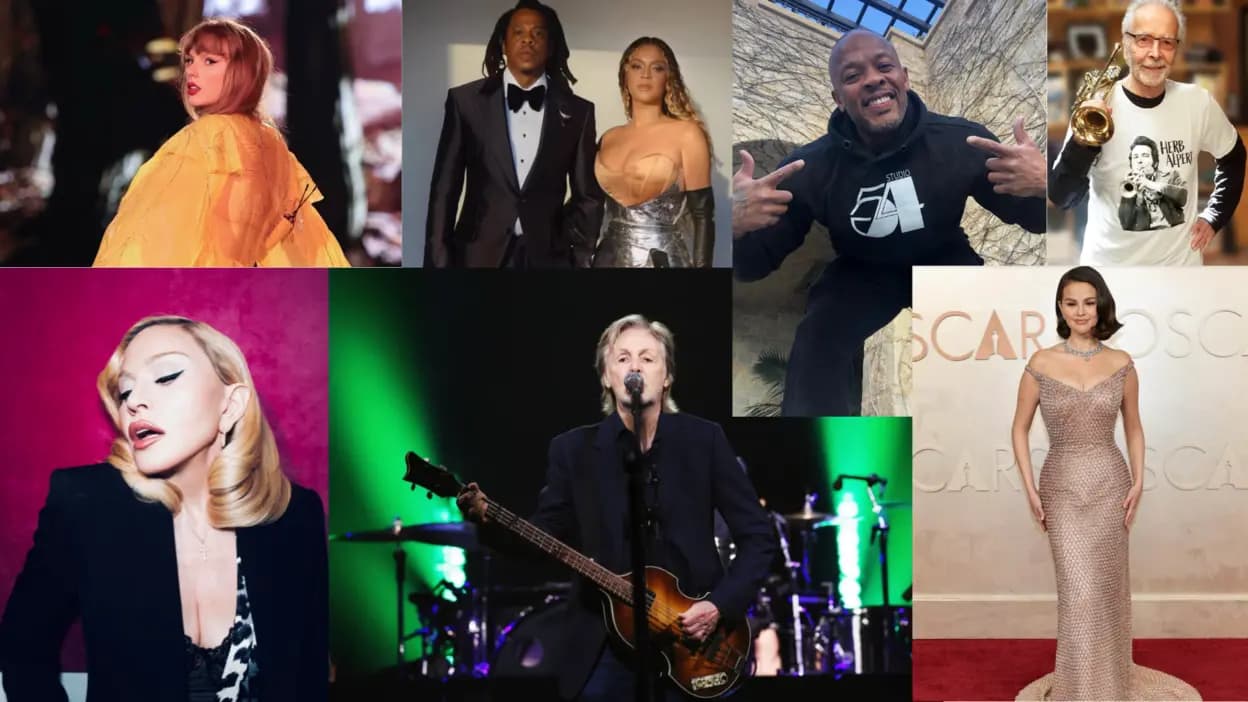We're loading the full news article for you. This includes the article content, images, author information, and related articles.
A German study links stardom directly to higher mortality, a finding that resonates with the well-documented pressures facing artists in Kenya's high-stakes music industry.

GLOBAL - Achieving fame can shorten a musician's life by an average of 4.6 years, according to a study from the University of Witten/Herdecke in Germany, which establishes a direct link between stardom and increased mortality risk. The research, published in the Journal of Epidemiology & Community Health, found that the risk associated with fame is comparable to that of occasional smoking.
The study, led by senior author Michael Dufner, a professor of personality, psychology, and diagnostics, analyzed a sample of 648 singers. Half of these artists were classified as 'famous', selected from the top 2,000 Artists of All Time list by the ranking website Acclaimed Music, which includes iconic names like The Beatles and Bob Dylan. Each famous singer was meticulously matched with a less famous counterpart based on gender, nationality, ethnicity, music genre, and whether they were a solo artist or in a band.
The findings revealed that famous singers lived to an average age of 75.19 years, whereas their less famous peers lived to 79.75 years. This data indicates that famous singers face a 33% higher mortality risk than their less-known counterparts. The researchers noted that this elevated risk only emerged *after* an artist achieved fame, strengthening the conclusion that stardom itself is a significant contributing factor.
While the study did not determine the specific causes of death, the authors suggest that the unique psychosocial stressors accompanying fame—such as intense public scrutiny, performance pressure, loss of privacy, and greater exposure to substance use—are likely contributors. These pressures can fuel psychological distress and harmful coping mechanisms, turning fame into a chronic burden. Interestingly, the study also found that being in a band was associated with a 26% lower mortality risk compared to being a solo artist, suggesting that the emotional support and shared pressure within a group may have a protective effect.
The research focused on artists active between 1950 and 1990, with a sample that was predominantly male (83.5%), white (77%), and from the United States (61%). The authors acknowledge these limitations, stating that the findings may not be generalizable to other regions or other fields of fame like acting or sports, and called for further research.
While this study did not include Kenyan or East African artists, its conclusions resonate with the challenges faced by musicians in the region. The Kenyan entertainment industry, though growing, is fraught with pressures that can impact mental and physical health. Several high-profile Kenyan artists have publicly shared their struggles with mental health issues, including depression, burnout, and anxiety, often linked to the demands of their careers and public life.
In August 2025, renowned singer Akothee announced she was suspending all projects to prioritize her health, citing severe burnout and persistent headaches after a demanding year. Other artists, including Otile Brown, Khaligraph Jones, and Jovial, have also spoken out about their battles with depression, highlighting the difficulty of opening up in an industry where artists are expected to project an image of constant success. According to a 2024 report, 23% of Kenyans are distressed and struggling with their mental health, a figure that experts believe is prevalent, if not higher, within the high-pressure entertainment sector.
Industry stakeholders in Kenya have called for the creation of safe spaces and better support systems, including access to therapy and counseling services, to help artists navigate the complexities of their careers. Organizations like the Music Copyright Society of Kenya (MCSK) and the Performers Rights Society of Kenya (PRISK) exist to protect artists' interests, but the focus is often on copyright and royalties rather than holistic well-being. The conversation around mental health in the industry is growing, with many advocating for a more sustainable and supportive environment to ensure the longevity and health of its talent.
Keep the conversation in one place—threads here stay linked to the story and in the forums.
Sign in to start a discussion
Start a conversation about this story and keep it linked here.
Other hot threads
E-sports and Gaming Community in Kenya
Active 9 months ago
The Role of Technology in Modern Agriculture (AgriTech)
Active 9 months ago
Popular Recreational Activities Across Counties
Active 9 months ago
Investing in Youth Sports Development Programs
Active 9 months ago
Key figures and persons of interest featured in this article